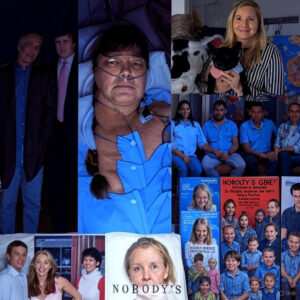
Blood still glistened on the flag when the livestream cut to black. For a few breathless moments, the world stared at its screens, frozen between awe and horror. Moments earlier, millions had witnessed what should have been a triumph of science — and instead became a fracture line in human history.
It began as a quiet announcement, streamed from a modest laboratory hidden within a sprawling research complex. A young scientist — her name now whispered, censored, and searched in equal measure — stood before the world, her hands shaking but her voice steady. She claimed to have done the impossible: to have discovered a microscopic organism not from Earth, but of Earth — a lifeform that defied every biological law we thought we knew.
“It doesn’t evolve,” she said. “It remembers.”
Within seconds, the internet ignited. Some called it the greatest discovery since DNA. Others screamed hoax. Governments issued terse statements promising investigation. Corporations with billion-dollar biotech stakes saw their stock prices plummet. The chat feeds turned violent — a digital mob forming in real time. And then, as the tension reached its peak, someone offscreen shouted, a flag toppled, and blood appeared. The stream went dark.
But it was too late. The data had already been mirrored, downloaded, and shared. Fragments of her findings — slides, chemical formulas, coded images — began to circulate across encrypted networks. What went live could never be erased.
In the hours that followed, confusion hardened into conspiracy. Some claimed the scientist had been silenced by her own government. Others insisted she was part of a staged global psy-op designed to test public reaction. But beneath the noise, one truth began to surface: the discovery, whatever it was, challenged more than science. It challenged control.
If life itself could hold memory — not genetic, but experiential — then humanity’s understanding of identity, death, and evolution would have to be rewritten. Religion trembled. Politics polarized. Corporations raced to claim patents for something they did not yet understand.
Meanwhile, the original lab was sealed. Officials cited “biohazard containment,” but eyewitnesses described convoys moving equipment under heavy guard. The scientist’s social media accounts vanished overnight. Her colleagues refused to comment. Still, fragments of her final statement kept resurfacing online, often in distorted or deepfaked forms: “If life remembers, then so must we.”
What began as a livestream has become a global tug-of-war for truth. Nations accuse each other of data theft. Anonymous hackers leak supposed evidence. News outlets struggle to separate reality from manipulation. In the vacuum, the discovery itself — the organism, the proof — becomes myth, weapon, and warning.
And so the question remains, echoing across a world both connected and divided by its screens: who will control the story now — those who made it, or those desperate to bury it?
Because once a truth like this escapes into the digital bloodstream, there is no putting it back. The feed may have gone dark, but the world is still watching.
Leave a Reply